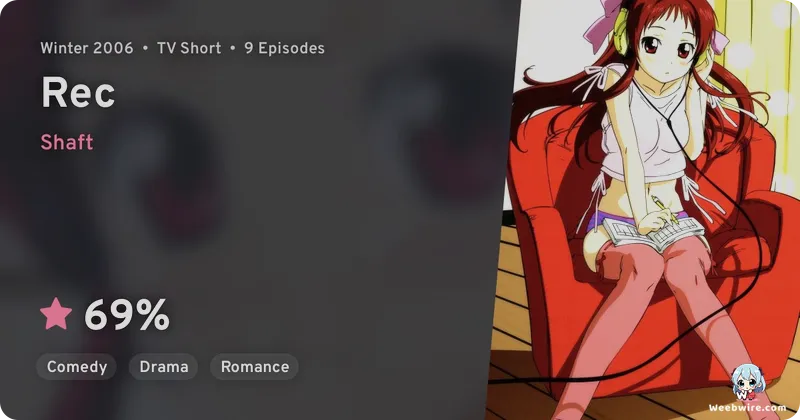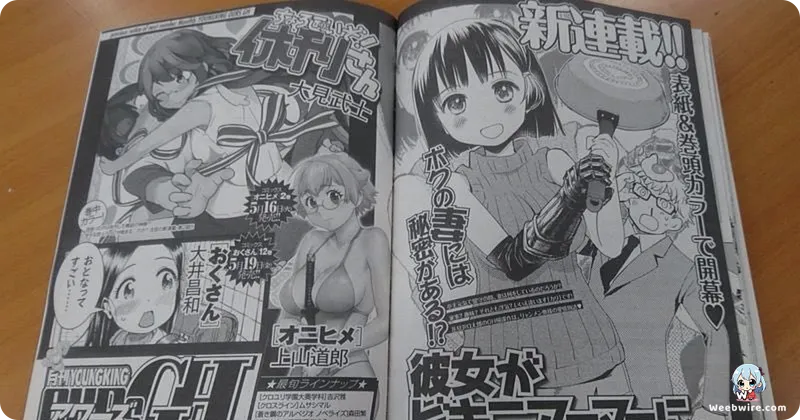Unveiling 'Rec': Shaft's Groundbreaking Romance Explores Love and the Voice Acting World

In the vibrant tapestry of anime, some titles, despite compelling narratives, remain cherished secrets among discerning viewers. One such hidden gem is the 2006 romantic comedy-drama, Rec, from the acclaimed Studio Shaft. While Shaft is recognized for its distinctive visual style in works like Monogatari and Puella Magi Madoka Magica, Rec offers a fascinating glimpse into a more grounded, intimately human side of the studio, diverging from their later, stylized productions. This deep dive uncovers the intriguing aspects that make Rec a standout in Shaft's diverse portfolio.
The Art of Concise Storytelling
A striking feature of Rec is its notably short episode length; each of the nine main episodes runs for approximately 12 to 13 minutes. This concise format, typically found in web series, significantly impacts pacing, demanding efficient storytelling. Rec masterfully conveys complex emotions and relationship developments within its limited timeframe, ensuring every scene counts. This brevity enhances rewatchability and allows for a tightly woven plot that never overstays its welcome, showcasing the scriptwriters' skill.
A Glimpse into Shaft's Early Style
Rec also serves as a compelling case study in Studio Shaft's evolution. Released in 2006, it predates many stylistic hallmarks that would later define the studio, such as frequent head tilts. While subtle hints of Shaft's artistic leanings appear, Rec maintains a more traditional animation style, focusing on character expressions and realistic settings. This makes it crucial for fans tracing Shaft's journey, demonstrating their versatility before embracing their signature aesthetic.

Authentic Industry Portrayal
The anime offers a surprisingly realistic portrayal of Japan's voice acting (seiyuu) industry. Protagonist Fumie, an aspiring voice actress, struggles in a competitive field, with the series depicting grueling auditions and the emotional toll of rejection. This authenticity is enhanced by a meta-detail: Kimiko Koyama, Fumie's voice actress, also performs the various in-anime roles Fumie undertakes, blurring lines between character and craft.
A Mature Romance
The central romance between Fumie and salaryman Hatakeda is another highlight, praised for its mature, grounded approach. Unlike many shojo tropes, Rec explores the complexities of adult relationships, balancing career aspirations with personal life. The characters feel genuinely human and relatable, making their journey feel earned and authentic. Their interactions, filled with understated humor and heartfelt moments, resonate with viewers appreciating a nuanced depiction of love.
Rooted in its manga source by Q-taro Hanamizawa, serialized in Weekly Young Sunday by Shogakukan, the anime provides a concise adaptation that captures the manga's essence. It stands as a complete narrative with a well-executed, conclusive ending, a notable achievement for a short series.
Ultimately, Rec remains a unique, often overlooked treasure. Its innovative format, pivotal place in Shaft's early works, authentic industry portrayal, and mature romance contribute to its distinct charm. For those seeking a meticulously crafted, emotionally resonant story, Rec is an essential watch that continues to surprise and delight.
Credits
Rec
Author
Q-taro Hanamizawa
Cover Art
Q-taro Hanamizawa
Studio
Shaft
Publisher
Shogakukan
Producers





